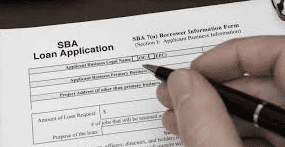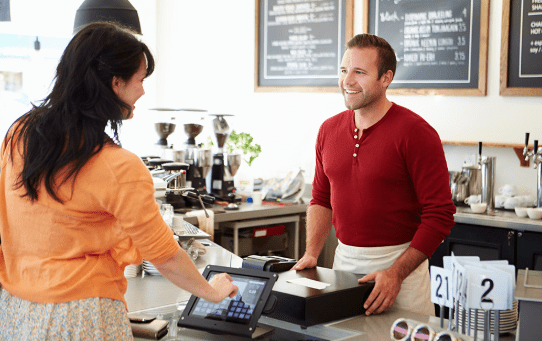Fast and Easy Business Loans
Hey there, business owners! Are you in need of some quick financing to help grow your business? Look no further than fast and easy business loans. Whether you need funds for inventory, equipment, or expansion, these loans can provide the capital you need in a timely manner. Say goodbye to lengthy approval processes and hello to quick access to cash. Let’s explore the benefits of fast and easy business loans together!
Understanding Quick Company Loans
Quick company loans are a type of financing that is designed to provide businesses with fast access to the capital they need. These loans are typically used to cover unexpected expenses, purchase inventory, or fund expansion projects. Unlike traditional bank loans, quick company loans have a streamlined application process and can often be approved within days or even hours.
One of the main advantages of quick company loans is their speed. Traditional bank loans can take weeks or even months to be approved, but quick company loans are designed to provide businesses with the capital they need in a timely manner. This can be crucial for companies that are facing urgent financial needs or opportunities.
Another key benefit of quick company loans is their flexibility. These loans can be used for a wide range of purposes, from covering payroll to purchasing new equipment. Unlike some other forms of financing, quick company loans do not require businesses to specify exactly how the funds will be used, giving them the freedom to invest in whatever is most beneficial for their growth.
Quick company loans can also be easier to qualify for than traditional bank loans. Banks often have strict requirements for borrowers, such as high credit scores and collateral, which can make it difficult for some businesses to secure financing. Quick company loans, on the other hand, are typically available to a wider range of businesses, including those with less-than-perfect credit or limited assets.
It’s important for businesses to carefully consider their options before applying for a quick company loan. While these loans can provide much-needed capital, they often come with higher interest rates and fees than traditional bank loans. Businesses should make sure they understand the terms of the loan and are confident in their ability to repay it on time.
In conclusion, quick company loans can be a valuable tool for businesses in need of fast financing. By understanding the benefits and potential drawbacks of these loans, businesses can make informed decisions about whether to pursue this form of financing for their growth and success.
Requirements for Quick Company Loans
When seeking a quick company loan, it is important to keep in mind the specific requirements that lenders may have in order to qualify for the loan. These requirements are put in place to ensure that the borrower is a reliable candidate for the loan and can repay it in a timely manner. Some common requirements for quick company loans include:
1. Credit Score: One of the primary factors that lenders consider when reviewing a loan application is the borrower’s credit score. A good credit score is typically seen as a sign of financial responsibility and can increase the chances of approval for a loan. Lenders may have minimum credit score requirements that borrowers must meet in order to qualify for a quick company loan.
2. Business Plan: In addition to a good credit score, lenders may also require borrowers to submit a detailed business plan outlining the goals, objectives, and financial projections for the company. This plan serves as a roadmap for how the loan will be used and how it will help the company grow. Lenders will review the business plan to assess the viability of the company and its ability to repay the loan.
3. Financial Statements: Lenders may also ask for recent financial statements, such as balance sheets, income statements, and cash flow statements, to evaluate the financial health of the company. These statements provide insight into the company’s current financial position and its ability to generate revenue and manage expenses. Lenders will use this information to determine the amount of the loan and the terms of repayment.
4. Collateral: Some lenders may require borrowers to provide collateral, such as real estate, equipment, or inventory, to secure the loan. Collateral serves as a form of security for the lender in case the borrower defaults on the loan. The value of the collateral will be assessed by the lender to determine the amount of the loan and the interest rate.
5. Personal Guarantee: In some cases, lenders may also require borrowers to provide a personal guarantee, which is a promise to repay the loan using personal assets in case the company is unable to do so. This adds an extra layer of security for the lender and increases the borrower’s commitment to repaying the loan.
In conclusion, meeting the requirements for a quick company loan is essential to securing the funding needed to grow and expand your business. By understanding and fulfilling these requirements, borrowers can increase their chances of approval and access the capital they need to achieve their business goals.
Benefits of Quick Company Loans
Quick company loans offer a variety of advantages for businesses looking to secure funding in a timely manner. Here are some of the key benefits:
1. Speed: One of the most obvious benefits of quick company loans is the speed at which funds can be obtained. Traditional bank loans can take weeks or even months to secure, but with quick company loans, businesses can often receive funding within just a few days. This rapid access to capital can be crucial for businesses in need of immediate financial assistance.
2. Simplified application process: Quick company loans typically have a more streamlined application process compared to traditional bank loans. This means less paperwork and a quicker turnaround time for businesses seeking funding. Many lenders offer online applications, making it easy for businesses to apply for a loan from the comfort of their office or home.
3. Flexibility in loan terms: Quick company loans often offer more flexibility in terms of loan amounts and repayment schedules. Businesses can often choose from a variety of loan options to find the one that best fits their financial needs. Additionally, many lenders are willing to work with businesses to customize loan terms to meet their specific requirements. This flexibility can make it easier for businesses to manage their cash flow and repay the loan on time.
4. No collateral required: Unlike traditional bank loans that often require collateral, quick company loans may not require businesses to put up assets as security for the loan. This can be a relief for businesses that may not have valuable assets to offer as collateral. Instead, lenders may consider other factors such as the business’s credit history and cash flow when deciding whether to approve a loan.
5. Growth opportunities: Quick company loans can provide businesses with the funding they need to pursue growth opportunities, such as expanding their operations, purchasing new equipment, or hiring additional staff. By securing a quick company loan, businesses can take advantage of these opportunities without having to wait for traditional bank financing.
In conclusion, quick company loans offer businesses a fast and flexible funding option that can help them meet their financial needs and pursue growth opportunities. With simplified application processes, rapid access to capital, and customized loan terms, quick company loans can be a valuable resource for businesses in need of financial assistance.
Types of Quick Company Loans
When looking for quick company loans, there are various options available to business owners. These types of loans are designed to provide fast access to funding in order to meet immediate financial needs. Here are some common types of quick company loans:
1. Short-Term Loans
Short-term loans are a popular choice for businesses looking for quick financing. These loans typically have a repayment term of less than one year and are usually easier to qualify for than traditional bank loans. Short-term loans can be used for a variety of purposes, such as working capital, inventory purchase, or equipment upgrades. The application process is quick and funding can be received in a matter of days.
2. Invoice Financing
Invoice financing is a type of quick loan that allows businesses to borrow money against their outstanding invoices. This can be a great option for companies that have outstanding invoices from customers but need cash flow to cover expenses in the meantime. The lender will advance a percentage of the invoice amount and then collect the full amount from the customer when the invoice is due. Invoice financing is a fast and convenient way to access cash without having to wait for customers to pay.
3. Business Line of Credit
A business line of credit is a flexible loan option that allows business owners to access funds as needed up to a predetermined credit limit. Unlike traditional term loans, where you receive a lump sum of money upfront, with a line of credit you can draw funds as needed and only pay interest on the amount you use. This type of loan is great for covering short-term expenses, managing cash flow fluctuations, or seizing opportunities for growth. A business line of credit can be a quick and convenient way to access funding when needed.
4. Merchant Cash Advance
Merchant cash advances are a type of quick loan that is based on a business’s future credit card sales. With a merchant cash advance, a lender will provide a lump sum of cash upfront in exchange for a percentage of the business’s daily credit card sales. This type of loan is convenient for businesses that have a high volume of credit card transactions and need quick access to capital. While merchant cash advances can be an expensive form of financing due to the high fees and interest rates, they can be a good option for businesses in need of quick funding with less stringent credit requirements.
Tips for Applying for Quick Company Loans
When it comes to applying for quick company loans, there are a few tips and tricks that can help increase your chances of getting approved. Here are some key things to keep in mind:
1. Know Your Credit Score: Before applying for a loan, it’s important to know your credit score. Lenders will use this information to determine your creditworthiness and the interest rate you qualify for. Make sure to check your credit report for any errors and take steps to improve your score if needed.
2. Have a Solid Business Plan: Lenders want to see that you have a clear plan for how you will use the funds from the loan and how you will repay it. Be prepared to present a detailed business plan that outlines your company’s goals, revenue projections, and how the loan will help you achieve them.
3. Gather Necessary Documents: Be prepared to provide documentation to support your loan application, such as tax returns, bank statements, and financial statements. Lenders will use this information to assess your company’s financial health and ability to repay the loan.
4. Shop Around for Lenders: Don’t just settle for the first lender that offers you a loan. Take the time to shop around and compare offers from different lenders. Look for ones that offer competitive interest rates, flexible repayment terms, and have experience working with companies in your industry.
5. Build a Relationship with the Lender: Building a relationship with the lender can improve your chances of getting approved for a quick company loan. Take the time to meet with the lender in person, explain your business goals and financial needs, and show them why you are a trustworthy borrower. Lenders are more likely to approve loans for companies they have a relationship with and trust.
By following these tips and taking the time to prepare a strong loan application, you can increase your chances of getting approved for a quick company loan. Good luck!
Originally posted 2025-10-03 02:22:25.






